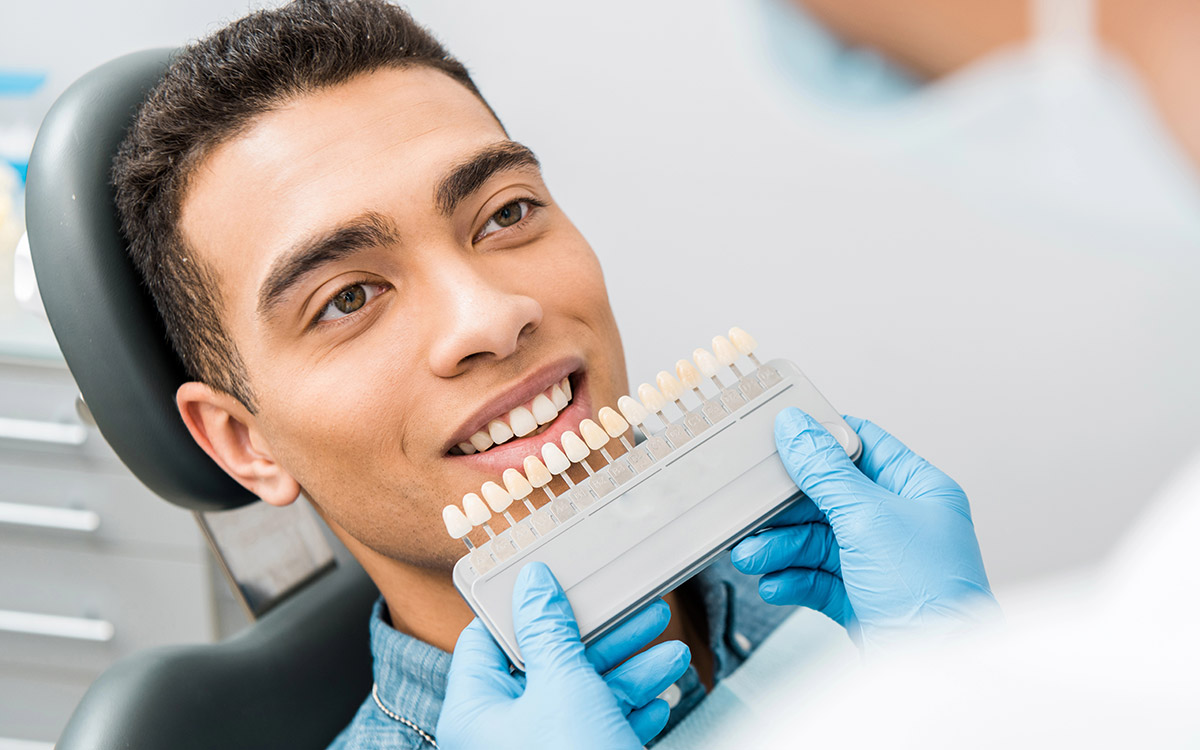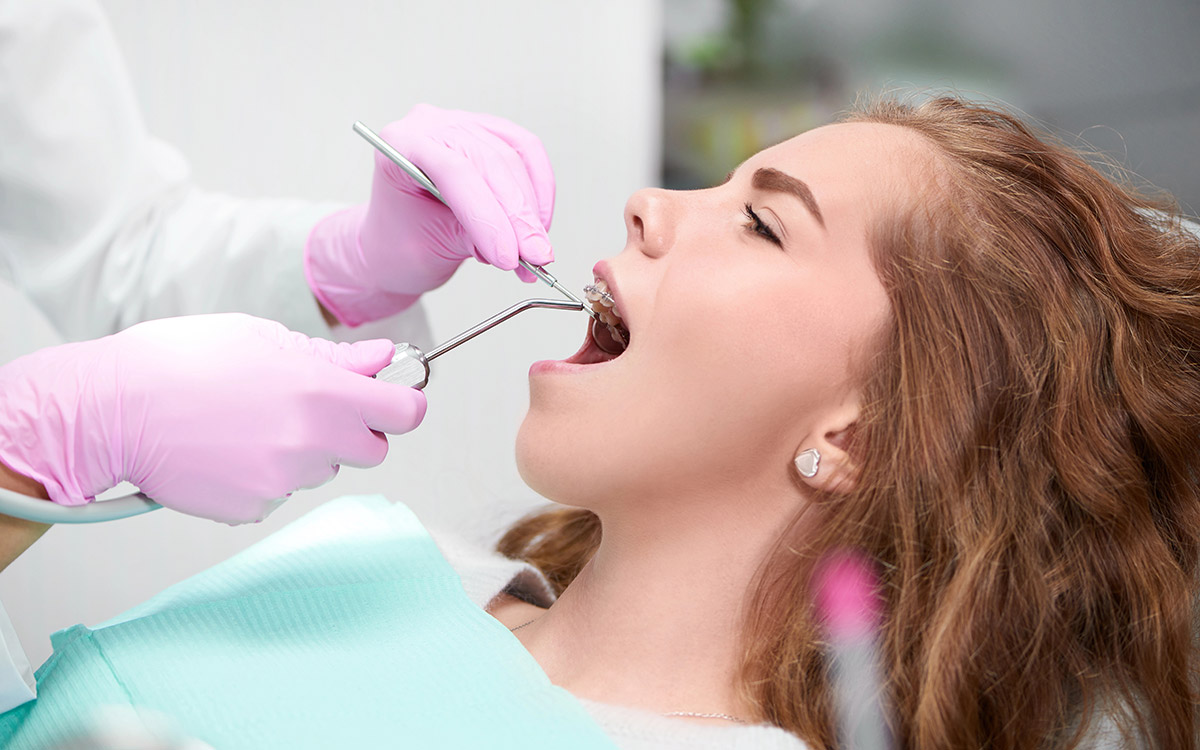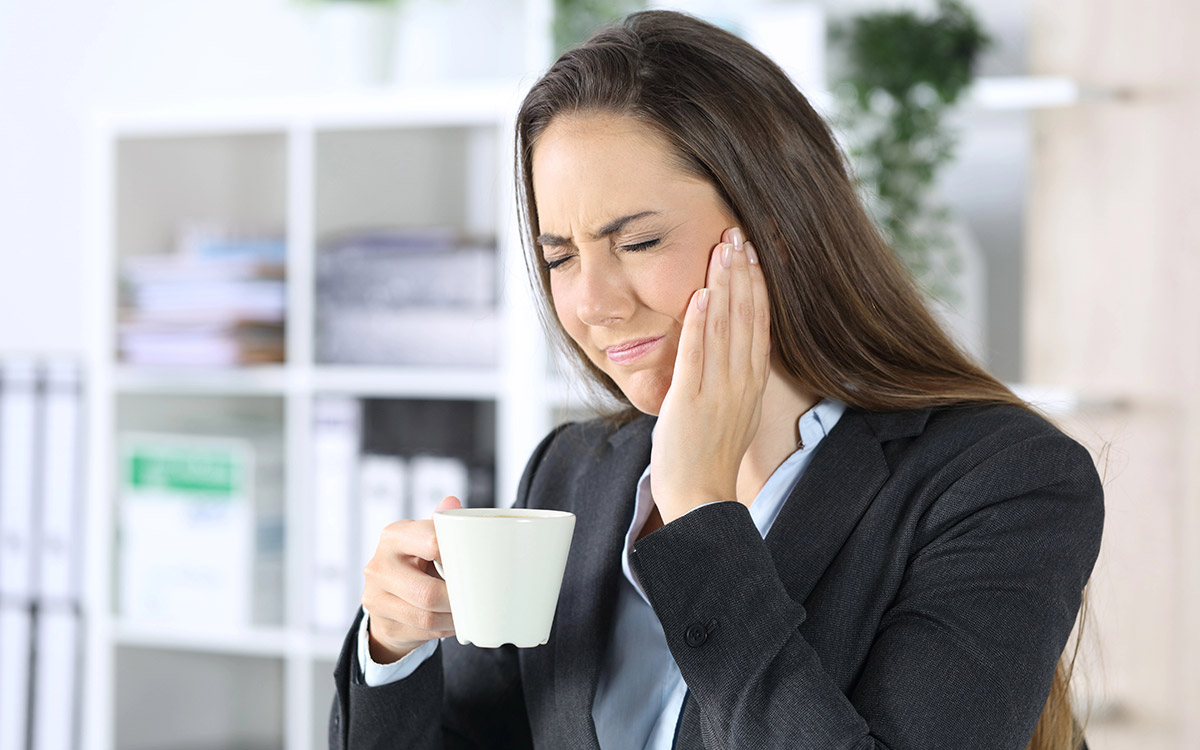Nobody wants to consider that they have any type of cancer. But early diagnosis helps with treatments and recovery. Therefore, it is important to pay attention to warning signs and consider screening.
Mouth or oral cancer is one of the diseases that most people ignore. However, it is necessary to keep a lookout for any warning signs because the condition causes a lot of difficulties by affecting social and work life.
Oral cancer appears as growths or sores in any part of the mouth. The sores could be on your tongue, gum, inner cheek, lips, hard and soft palate, sinuses, and throat. If left untreated, mouth cancer is life-threatening.
Below you will find information on the risk factors of oral cancer. Additionally, you will learn how this disease affects your dental health and treatments. But first, note down the following symptoms of oral cancer.
Common Symptoms Of Oral Cancer
The most common symptoms of oral cancer are:
- A sore in your mouth- the sore does not heal; it looks thick like a lump. In addition, the areas around the sore look eroded.
- Unexplained and random bleeding from the mouth.
- Red or velvety white patches in the mouth- they could also be white and red patches.
- Tenderness in some parts of the mouth.
- Unexplained numbness in the mouth- which makes chewing and swallowing difficult.
- Loose teeth.
- Soreness at the back of the throat- it could also come with hoarseness or a change of voice.
- Difficulty when swallowing- mostly because you experience pain.
- An earache that won’t go away.
- Sudden weight loss.
- Lump in the neck.
- Pain wearing dentures- and other dental aids.
- Stinging pain when using mouthwash or brushing your teeth.
It is important to note that some of these symptoms could indicate other issues, not oral cancer. For example, an earache could be due to an ear infection. Similarly, sore throats could be signs of the flu and other diseases.
Therefore, it is always advisable to get a diagnosis from a specialist. You can also look at some of the risk factors of oral cancer below to help you make informed judgments.
Risk Factors Of Oral Cancer
Studies show that men are two times more likely to develop oral cancer than women. Additionally, men over the age of 50 are at greater risk. Some of the risk factors for the development of cancer include:
- Smoking. Tobacco smoking puts you at risk of developing mouth cancer because it is highly toxic to the mouth tissues.
- Alcoholism. People who drink a lot of alcohol are more likely to develop oral cancer. This is because alcohol weakens the immunity system. It is highly toxic to the cells in the mouth.
- Smokeless tobacco use. Similarly, using smokeless tobacco products puts you at risk of developing oral cancer.
- Poor diet. Studies show a link between oral cancer and a poor diet that eliminates fruits and vegetables.
- Human papillomavirus (HPV). Studies show that people with a specific type of HPV are directly linked to oral cancer.
- A history of cancer in the family.
- Weakened immune system. It can be due to malnutrition or the effects of other diseases.
- Gender and age. Studies show that men are more likely to develop oral cancer than women. Additionally, the cancers take years to grow, so older people above 50 are at a higher risk.
- Excessive exposure to the sun.
A dentist may screen for oral cancer as part of your dental examination. Experts recommend annual oral cancer screening from the age of 18. Or every year after you start smoking, drinking, and having sex. This will help the doctor catch it early, improving the chances of treatment and recovery.
Oral Cancer And Your Dental Health
Oral cancer, like other cancers, takes a toll on your dental health. One of the symptoms of oral cancer is tooth loss which happens often. When you develop oral cancer, your teeth start to fall out because your immune system is too weak. Other ways that cancer affects your oral health include:
- Dry mouth. Cancer effects and treatments can damage the salivary glands. This disrupts the proper flow of saliva, causing a dry mouth. Since saliva helps balance bacteria levels in the mouth, dry mouth leads to tooth decay and infections. Without saliva, acidic beverages and foods erode the enamel, causing sensitivity and cavities.
- Taste changes. You will also notice changes in taste due to the effects of cancer. As a result, some foods will not taste like they used to.
- Jaw pain. Regular radiation therapy to the head and neck will cause jaw pain. As a result, you will struggle with chewing foods and talking.
- Gum sensitivity. Another problem you may experience is gum sensitivity. Chemotherapy treatments make the gums very sensitive due to regular inflammation. Therefore, you will experience discomfort when brushing your teeth.
Treatment And Prevention Of Oral Cancer
Doctors treat cancer in three main ways depending on the location and stage.
- Surgery. This treatment is for the early stages of cancer. The surgeon removes the tumor and cancerous lumps. The surgeon may also remove some tissues around the mouth and neck to prevent growth.
- Chemotherapy. This treatment involves the use of drugs to kill cancer cells. The drugs are administered either orally or through an IV line. It is ideal for later stages of cancer and is often done on an outpatient basis. However, some people require hospitalization.
- Radiation therapy. This involves aiming radiation beams at cancerous tumors and growths once or twice a day. The treatment happens five days a week and can last for two to eight weeks. It is ideal for the advanced stages of cancer. In addition, some people get a combination of radiation therapy and chemotherapy to increase their chances of recovery.
There are a few things you can do to prevent damaging the cells in your mouth. By preventing damage, you lessen the chances of developing oral cancer.
- Stop smoking or use tobacco moderately.
- Drink alcohol moderately.
- Eat a well-balanced diet.
- Keep up with dental appointments.
- Avoid excessive exposure to the sun.







